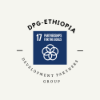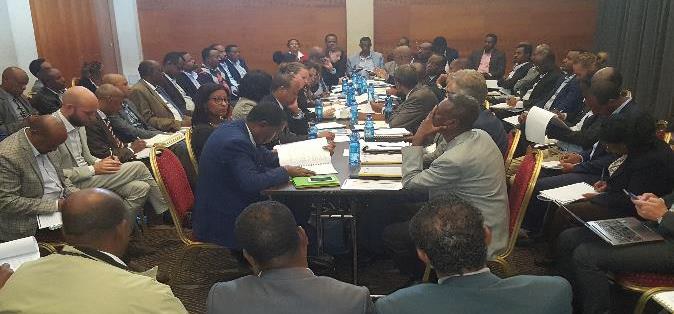Breadcrumb
MID-TERM REVIEW (MTR)
The GoE/DAG consultations on the Mid-term review of the GTPII was held on Tuesday 11 December. More than 150 participants from both government and development partners gathered at the Hilton Hotel to hear the progress made so far on meeting the objectives of the GTP II.
The Planning and Development Commission (PDC) highlighted briefed development partners on the assessment of GTPII implementation during the first two to three years of GTP II period; outlined major areas of short falls in implementation and key implementation challenges; informed on measures to be taken to make up for implementations deficits during the remaining years of GTPII.
Speaking on behalf of the DAG, Christian Rogg (DFID) and DAG Co-Chair thanked the Government for inviting development partners to the MTR consultations. He commended the Government for undertaking the mid-term review to assess progress and identify remedial measures to achieve GTP II targets. The DAG appreciated Government’s effort to make available, in good time, the GTP II midterm review to development partners, to allow substantive feedback and consultations across sectors. The DAG commended the Government for holding countrywide consultations on GTP II with all stakeholders, including youth, pastoralist representatives, civil society and private sector. Government was encouraged to hold similar consultations in the years ahead to review implementation of the GTPII. The DAG reaffirmed its commitment to support such reviews where by stakeholders hold each other accountable for results.
During consultations between senior government officials and development partners in break out sector specific discussions, some of the issues highlighted include the following observations; that real GDP growth has been resilient despite challenges particularly political uncertainty, climate change driven droughts, deterioration in terms of trade and weaknesses in domestic resource mobilization. It was recommended that a holistic reform package is necessary to accelerate Ethiopia’s transition from a public sector-led to a public sector enabled and private sector-driven/export-oriented economy. Some of the observations on social sector performance noted that efficiency and meeting targets set will depend on social, economic, political factors. Also recommended was investments in implementation capacity (human, institutional), resources and commitment for inter-sectoral collaboration. In terms of governance and other cross-cutting issues such as climate and gender, it was recommended that to conduct a mapping of who does what and where to better coordinate and align interventions to government priorities such as fighting corruption, 2020 election, sustainable peace, capacity building of democratic institutions, justice sector and civil service reform.
(Download pdf to read the full newsletter )

